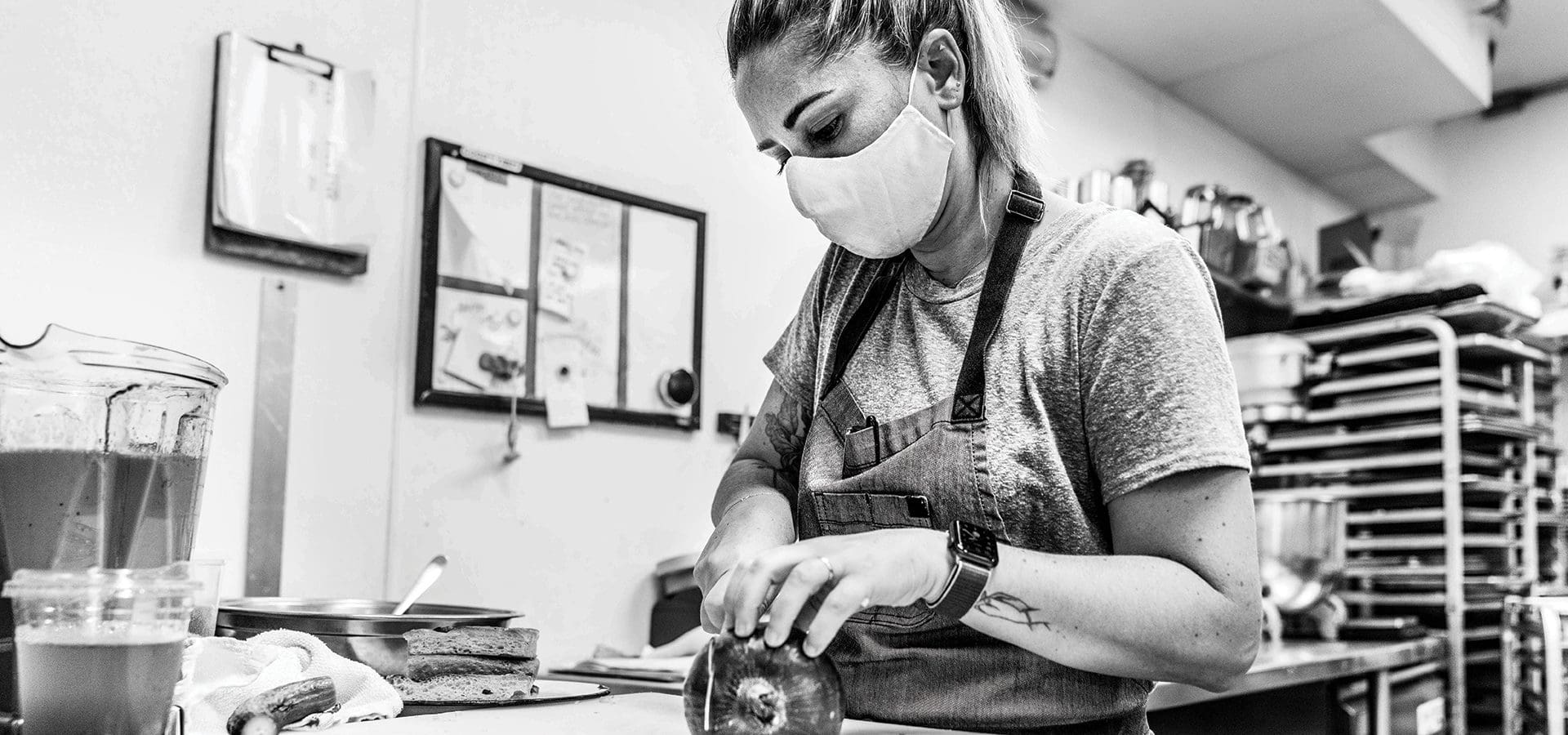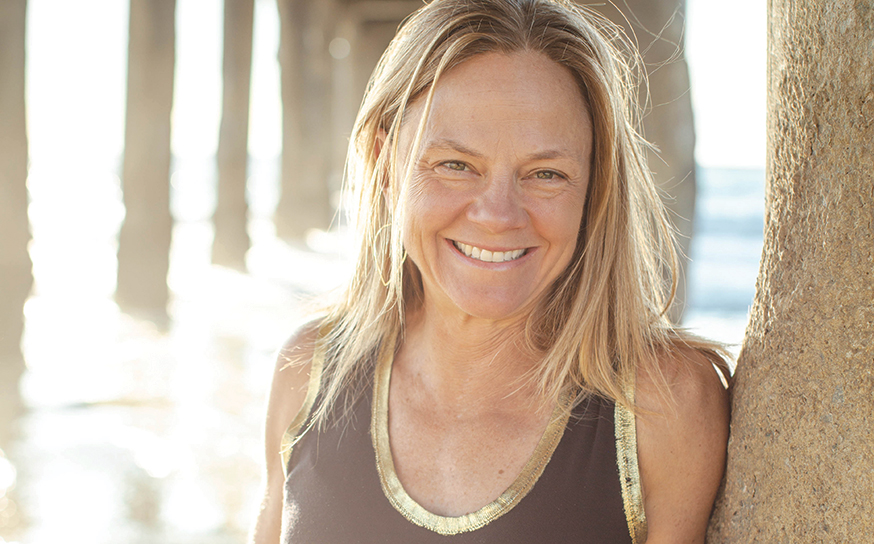South Bay Restaurants Feed Our Community and, in Turn, Nourish Our Need for Connection
Comfort food.
- CategoryEat & Drink, People
On Sunday, March 15, with California recording its 335th case of the novel coronavirus, Governor Gavin Newsom made the call for all bars and nightclubs to close and urged restaurants throughout the state to reduce their seating capacity. It was the first domino to fall in what would become a disastrous week for the hospitality industry. But before the ink was dry on new seating charts, the order changed again the next day. Takeout and drive-through were okay, but in-restaurant dining was suspended indefinitely.
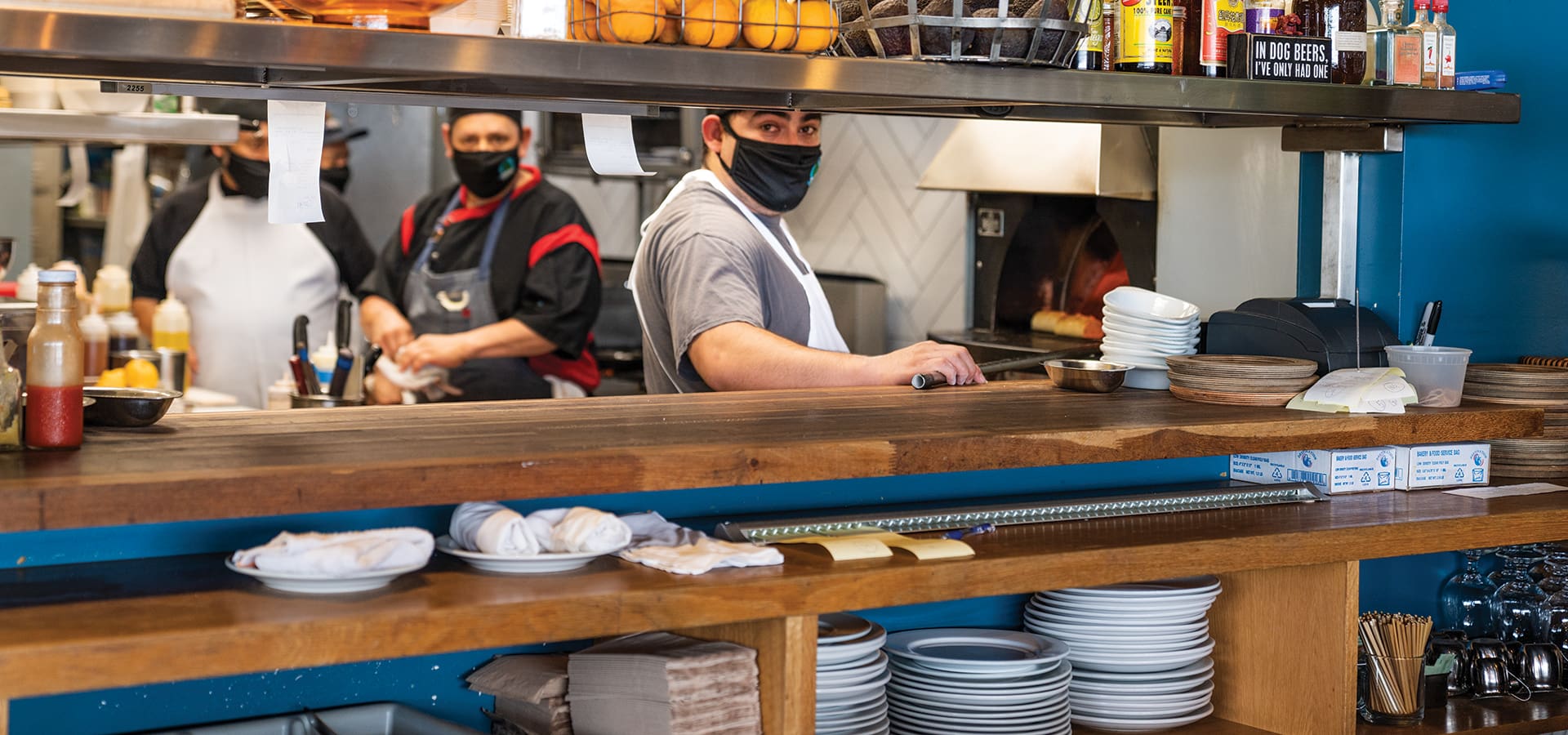
On Wednesday, March 18, less than 48 hours later, restaurants were told to close completely, and although they’d be able to resume delivery and takeout services by Friday, the damage had already been done. Tom Bené, CEO of the National Restaurant Association, predicts that restaurant industry losses will eclipse $240 billion by the end of 2020.
By late July, recorded coronavirus cases in California had reached nearly 500,000. After a brief reopening, bars and restaurants were asked to close again. By the time you read this, who knows what the mandate will be, or how many restaurants will have closed permanently.
“The first reaction was fear—‘I’ve gotta figure out a way to save the business,’” remembers Christina Oliva, co-owner of HopSaint Brewing Company, of when she first received the news. “We’re a barbeque joint that never did takeout. My kitchen is so small, I didn’t want to impact it. Now all of a sudden I had to do the very thing that I resisted—and I had to figure out a system in 24 hours.”
The former co-owner of Hermosa’s Cafe Boogaloo, Christina was born and raised in the South Bay. Her first job was bussing tables at El Indio on Artesia Boulevard when she was 15. Christina, like other restaurateurs in the Beach Cities, was immediately faced with staff reductions and walk-ins full of food, as well as long-term challenges like rent payments and vendor bills. Then there was staying up-to-date with compliance efforts, changes to unemployment criteria, Paycheck Protection Program regulations and the special dispensations offered by the state of California regarding to-go alcohol sales, outdoor dining, and sales and use tax deferments.
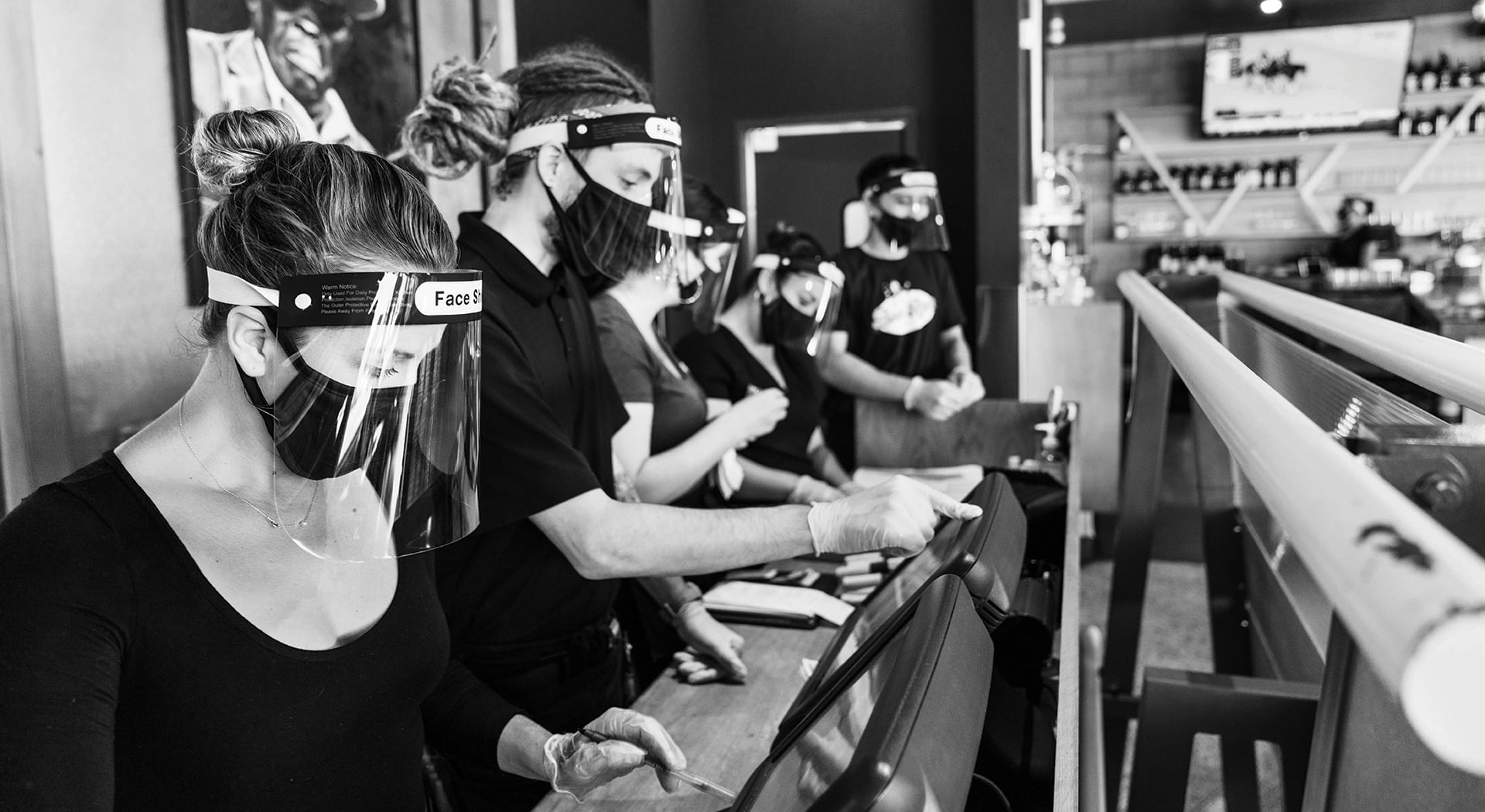
HopSaint Brewing Company
“We saw sales drop 10%, 20%, 50%, and I think by the end of the week we were down 75%,” says Andrew Stanisich, owner of the popular Two Guns cafes and restaurants. “It was catastrophic, and it happened so fast.”
Andrew actually reached out to his landlords at the beginning of March to let them know that he might not be able to make rent. “I told them, ‘Just a heads-up: We may not be paying April and possibly May rent payments because it looks like we’re gonna have to close. I’m good for it, but I may not be good for it right now.’”
Prior to the March mandates, Andrew was operating seven Two Guns locations, from full kitchens in Manhattan Beach and El Segundo to kiosks in El Segundo and Downtown Los Angeles. In April—the busiest month he ever recalls working in the nine years since he and his wife opened Two Guns—he had only one location.
With a focus on coffee and quick-serve food items, Two Guns was in a better position than most to weather the loss of in-restaurant dining. Online sales ballooned and deliveries tripled, with 80% of revenue coming via their mobile app. Two Guns went from selling coffee in their standard 12-ounce bags to offering a 2-pound option—then a 5-pound option.
Andrew took the opportunity to revise his leadership training manual for management staff to highlight new protocols. He kept employees informed with COVID-19 updates and unemployment info via a company Slack channel. He even got an old turntable up and running and started posting his vinyl finds, along with photos of happy customers at their North Manhattan Beach location—anything to help keep morale up, both for current employees and the dozens he had to furlough indefinitely.
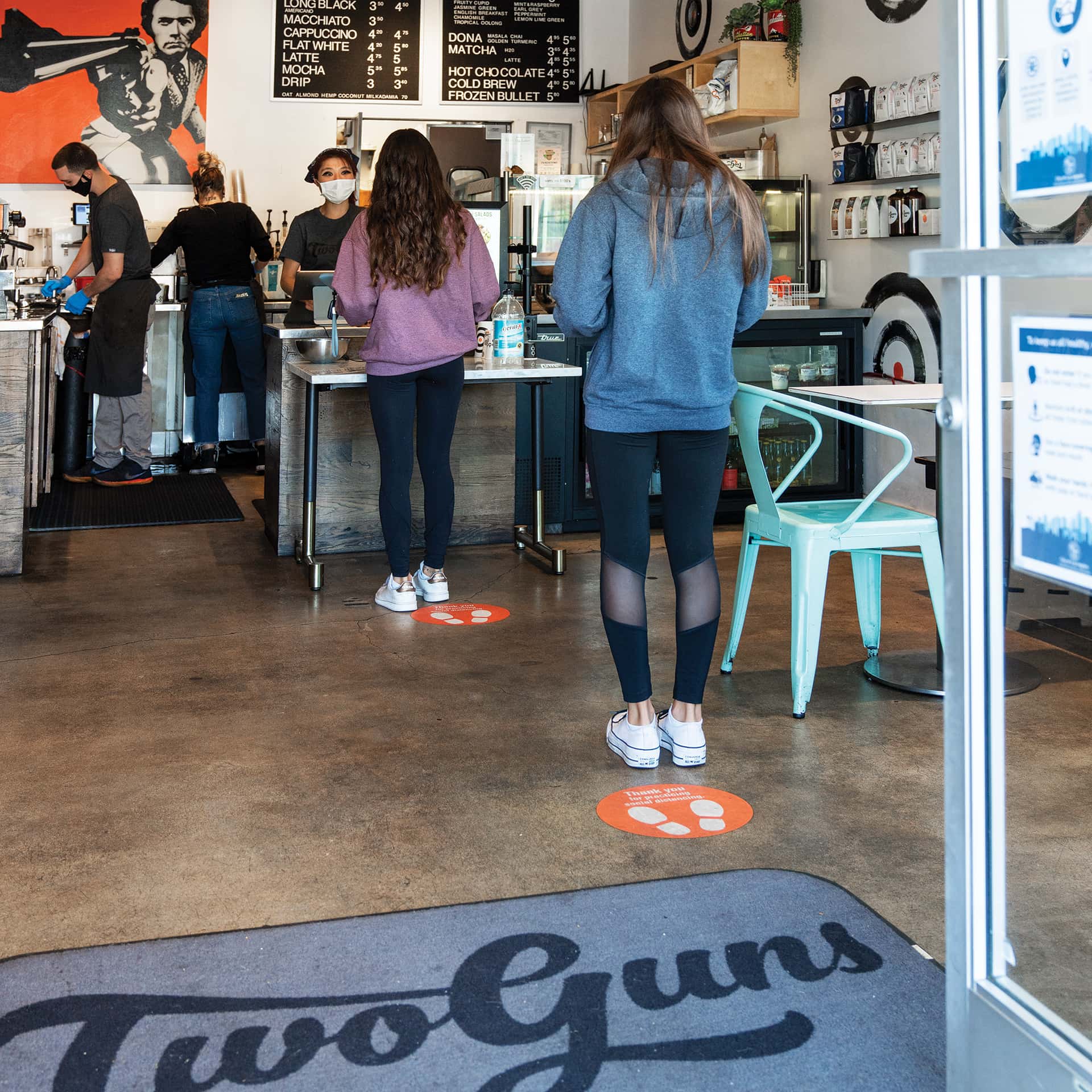
Around 15 million people are employed by the food service industry, the second-largest private-sector employer behind health care. Since March, more than 8 million jobs have been lost or furloughed. Ask any business owner what the hardest part of this pandemic has been, and you’ll hear the same answer: taking care of their employees. For Chef David LeFevre, those personnel decisions had to be made across three restaurants: Fishing With Dynamite, The Arthur J and MB Post.
“The hardest thing as an owner is working to keep your promises,” he says, recalling those first turbulent months. “You have very little control over how your business can survive, and you’re flying blind because you don’t know what’s going to happen next. You’d come up with a plan, and then 24 hours later it would be entirely moot.”
With a return to pre-COVID-19 revenue impossible to predict or effectively plan for, Chef David shifted his mission to people. “Our goal was to get enough orders to bring back one person every day. That was my goal: bring one more person back to work every day.”
One night, The Arthur J was just a few hundred dollars short of hitting its daily goal. With the restaurant set to close in 15 minutes, David—self-admittedly not the most effusive person—pulled his team together. “Alright, everybody! Positive thoughts! We’re gonna do this!”
At 7:55 p.m., a call came in for a six-person order that put them over their goal. “I was running around hooting and hollering, and they’re all looking at me like I’m crazy,” he laughs. “But that $200 meant we could rehire another person.”
Employees brought in to work on skeleton crews found a new camaraderie with ownership, and under the pressure and uncertainty of the ever-shifting circumstances, they developed even stronger bonds with their peers. Teams doubled down on customer service, knowing that every ticket represented someone’s conscious choice to trust the safety of their kitchen, or in some cases experience their first meal outside their home in months.
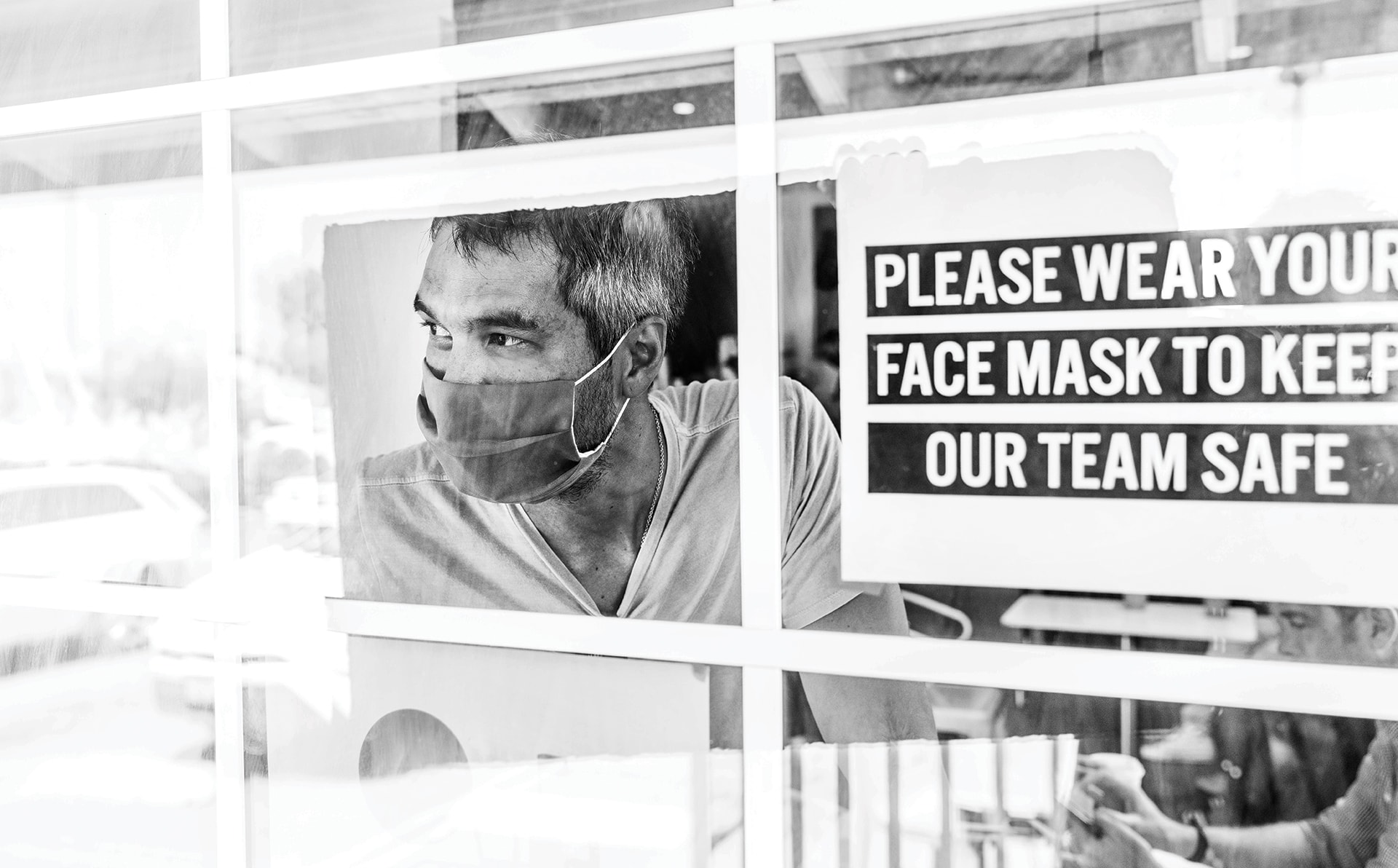
Two Guns Espresso
“If the phone was ringing, we answered it. If the bathrooms needed cleaning, we did it. If cocktails needed to be batched, we’d jump behind the bar and roll up our sleeves and do it,” says Sarah Davies, a server at the Arthur J. “We were moving boxes, stacking shelves, cleaning constantly. We sat down for a family meal at the end of every day and talked and ate—the managers, the cooks, the dishwashers. That never happened before.”
For owners, it was a return to the scrappiness and ingenuity of those first critical months after a new business opens. Andrew added a now-popular smoked brisket sandwich to his Two Guns menu—the result of some weekend experimentation during quarantine—while Christina did a special run of tamales at HopSaint that sold out in a day. MB Post, known for their smaller sharing portions, began offering entree-sized versions of their most popular items, while The Arthur J created family meal specials that include a main course, sides and a dessert for up to six people.
“They’re not extremely creative things, but they’re the things you have to do to get back to what you did previously,” explains Chef David, who says the popularity of the family meals has ensured their permanent place on the menu after operations return to normal.
During the early stages of the pandemic, South Bay restaurants also opened their kitchens to thousands of frontline workers across Southern California. Mike Simms of Simms Restaurants and his wife, Sonia, who specializes in pediatric emergency medicine at CHOC Children’s, helped raise nearly $90,000 through their Feed Our Heroes LA GoFundMe. At $10 per meal, the initiative provided fresh, healthy meals for thousands of ER workers.
Brooke Williamson and Nick Roberts, the husband-and-wife team who own multiple restaurants in Los Angeles, including Playa Provisions in Playa Del Rey and Hudson House in Redondo Beach, partnered with World Central Kitchen and their Help Feed The Frontline LA initiative. On their heaviest days, the kitchen at Playa Provisions was turning out 600 to 700 meals—sometimes three days a week. Then Nick would personally drive the meals to hospitals.
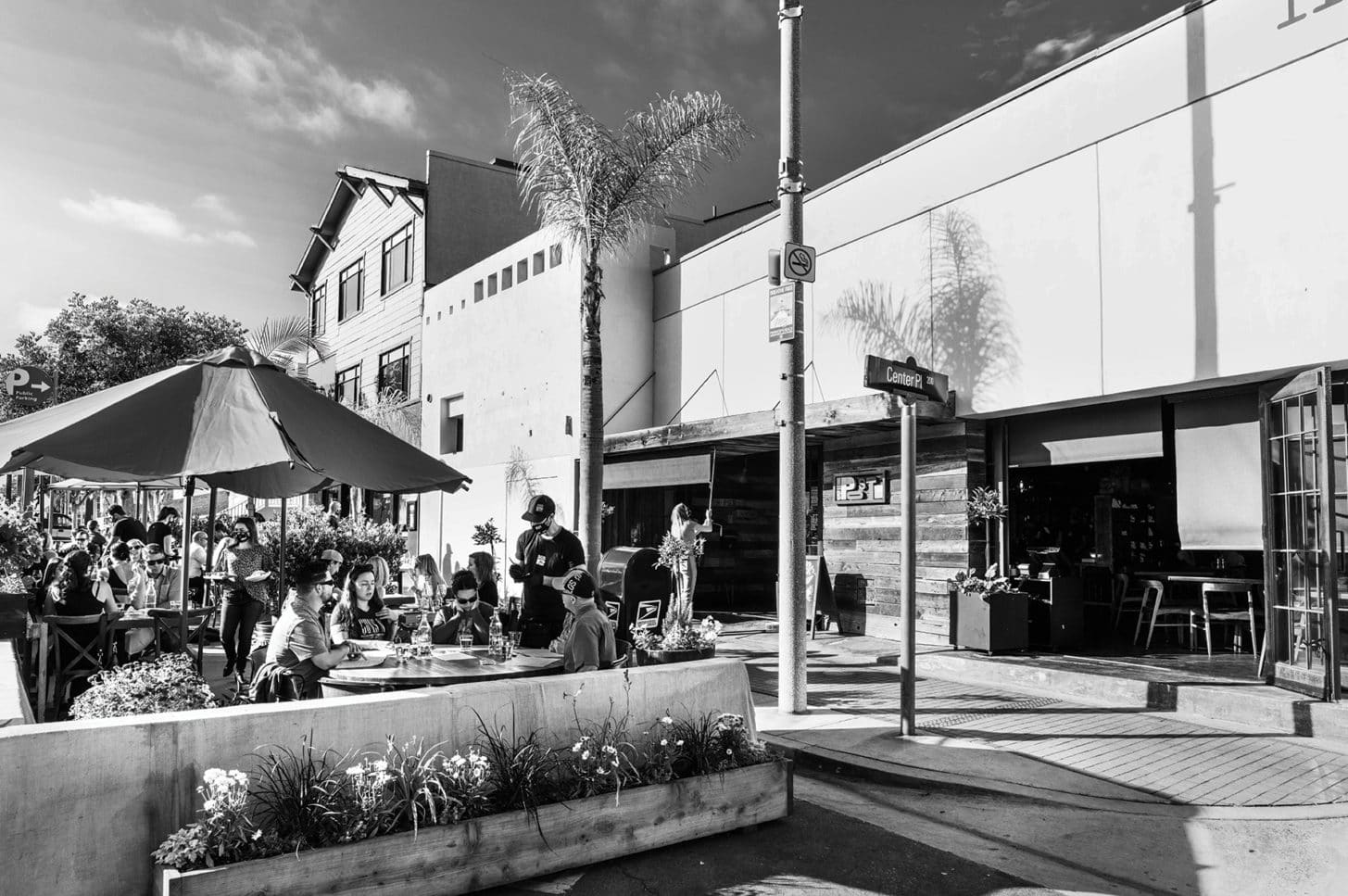
“You have very little control over how your business can survive, and you’re flying blind because you don’t know what’s going to happen next. You’d come up with a plan, and then 24 hours later it would be entirely moot.”
“I think this has given us the opportunity to focus on being a more active part of our own staff and participate in the daily routine of this specific location,” says Brooke. “We’re able to focus a bit more on menu, creativity, the staff, the camaraderie and the family feel of what this place is and has always had the potential to be, but maybe has skipped a beat here and there.”
That infusion of gratitude and present-mindedness into the food and front-of-house operations was palpable to the staff, and the energy translated to the patrons. “Our regulars would call us every week to check how we were doing—not just the restaurant but us as a team,” says Sarah. “Some of them would drive past and beep their horns and wave like we were their neighbors.”
Andrew spoke with a customer one morning at his North Manhattan location who confessed to walking 7 miles round-trip to score his coffee. “He said it was the highlight of his day,” laughs Andrew. Christina remembers the first call she got when HopSaint opened for takeout. It was a customer she knew well—a family of four—that placed a $400 food order and purchased $500 worth of gift cards. “I had to choke back the tears because I knew they were throwing me a lifeline,” she says.
As of July 15, nearly 100 permits have been issued to businesses across the South Bay for various iterations of outdoor dining—from sidewalks to parking lots—and cities have lowered and in some cases waived entirely their permitting and application fees. El Segundo closed down a portion of Richmond Street between Grand and Franklin to allow restaurants to accommodate as many tables as possible for outdoor dining. The pilot program will be in effect through Labor Day weekend and will help gauge sentiment from residents on whether to enact permanent changes that would make Downtown El Segundo more pedestrian-friendly.
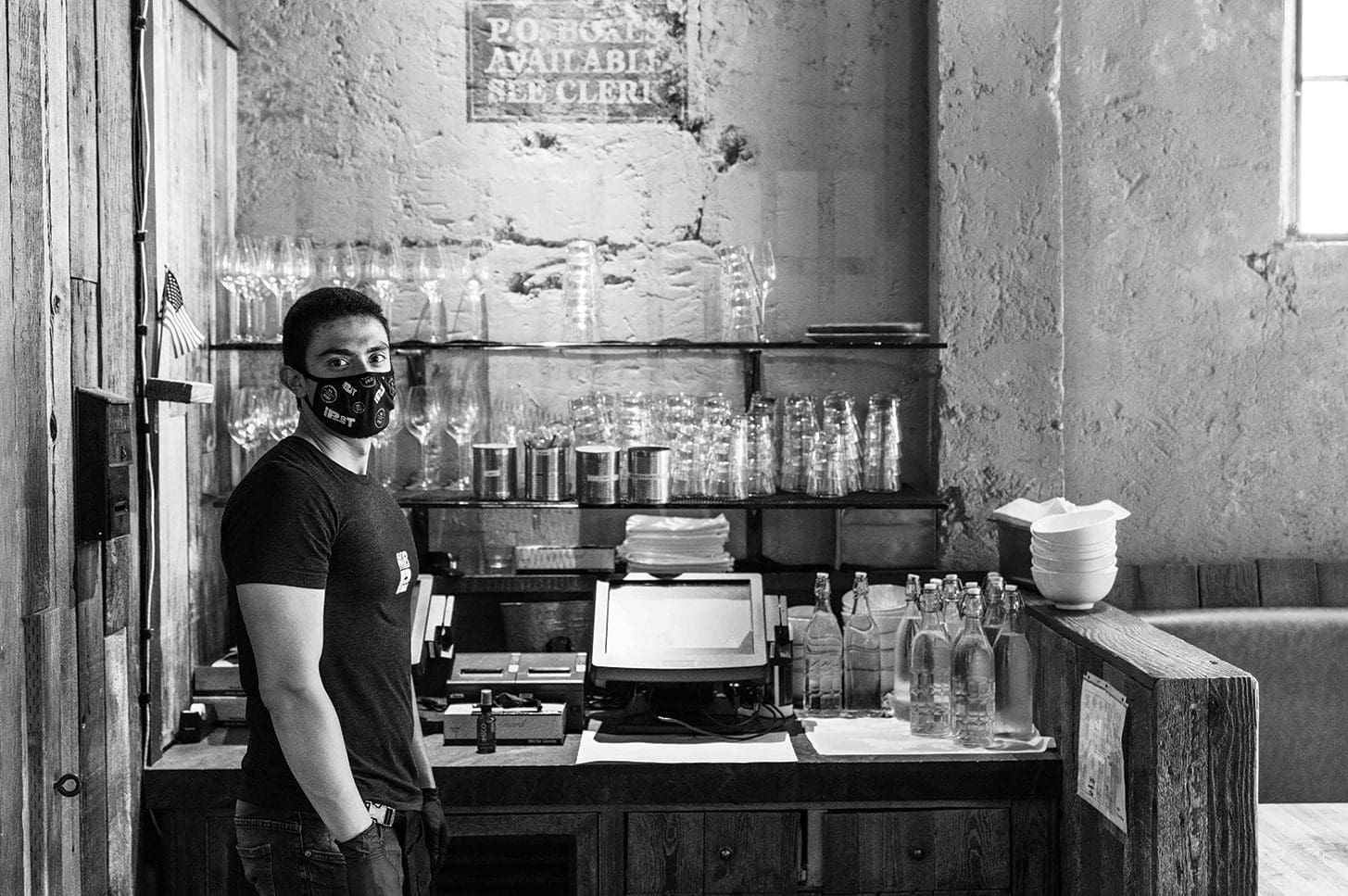
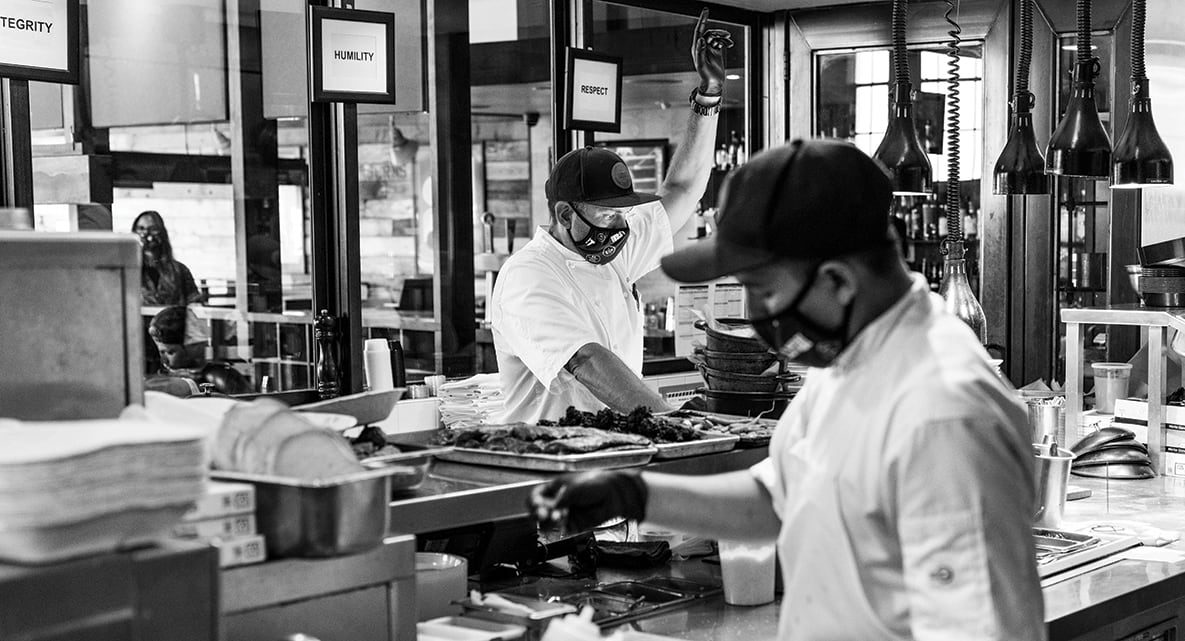
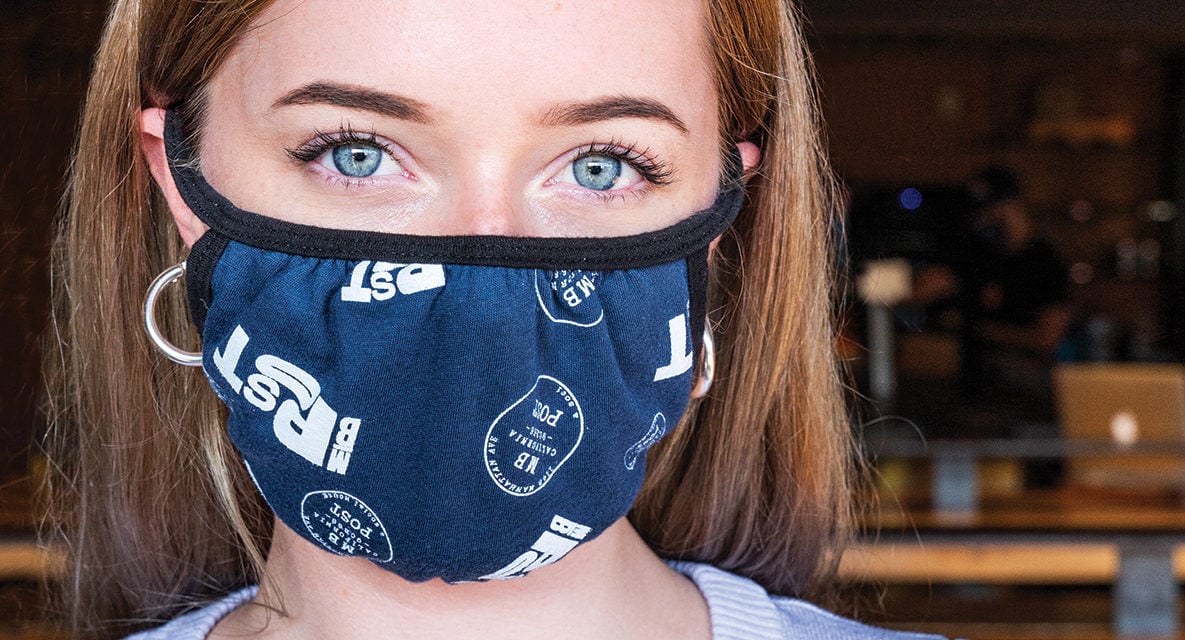
Until then, El Segundo—like every other city in North America—sits and waits for the new normal to take effect. Many hope that some of the dispensations will become permanent to help businesses recoup their losses. Others are simply trying to hang on while mandates reduce their capacities and cap their profit potential. But anyone who’s casually strolled into a cafe and ordered “the usual”—or a family that’s celebrated a sweet 16, a high school graduation and a 10-year wedding anniversary in the same corner booth—knows that this pandemic has impacted far more than what we put in our stomachs on any given afternoon.
“We saw sales drop 10%, 20%, 50%, and I think by the end of the week we were down 75%. It was catastrophic, and it happened so fast.”
“We are a community service,” says Andrew. “When you build these locations, sure they’re ours to start with, but then they become owned by the community. When you stand in line at Two Guns, you might see your lawyer, your accountant, your personal trainer, your best friend from college. You may not be able to schedule your busy life to see them often, but you catch up with them for 10 minutes at Two Guns. The hardest thing for us is to say goodbye to that idea, or wait for that idea to come back, because that’s really what we build our business on.”
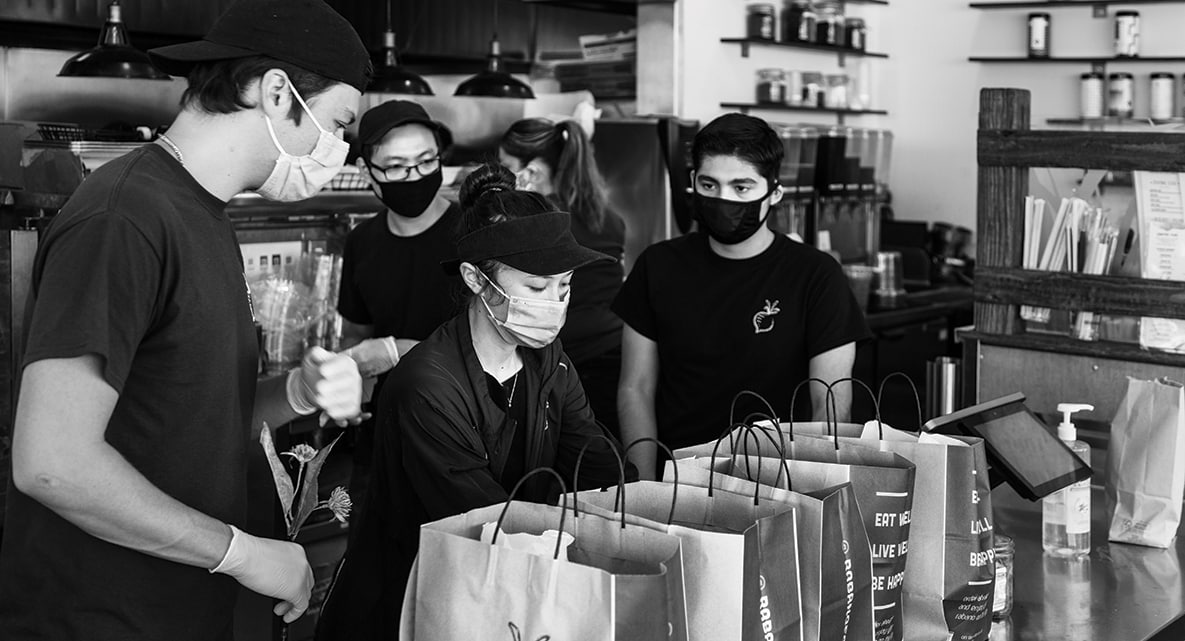
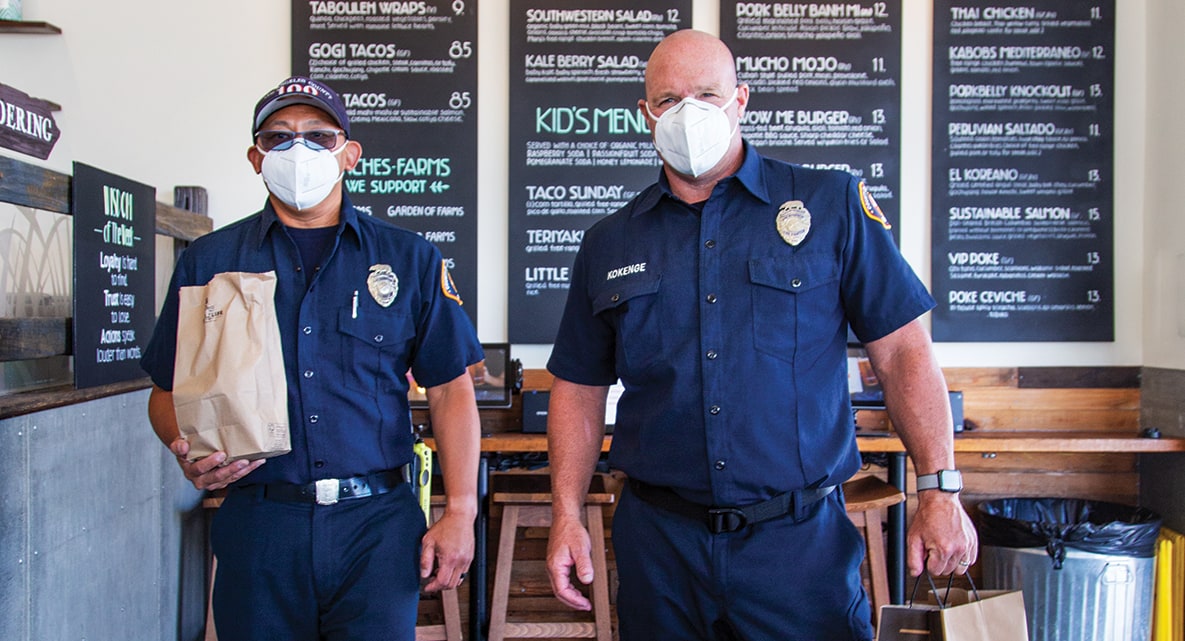
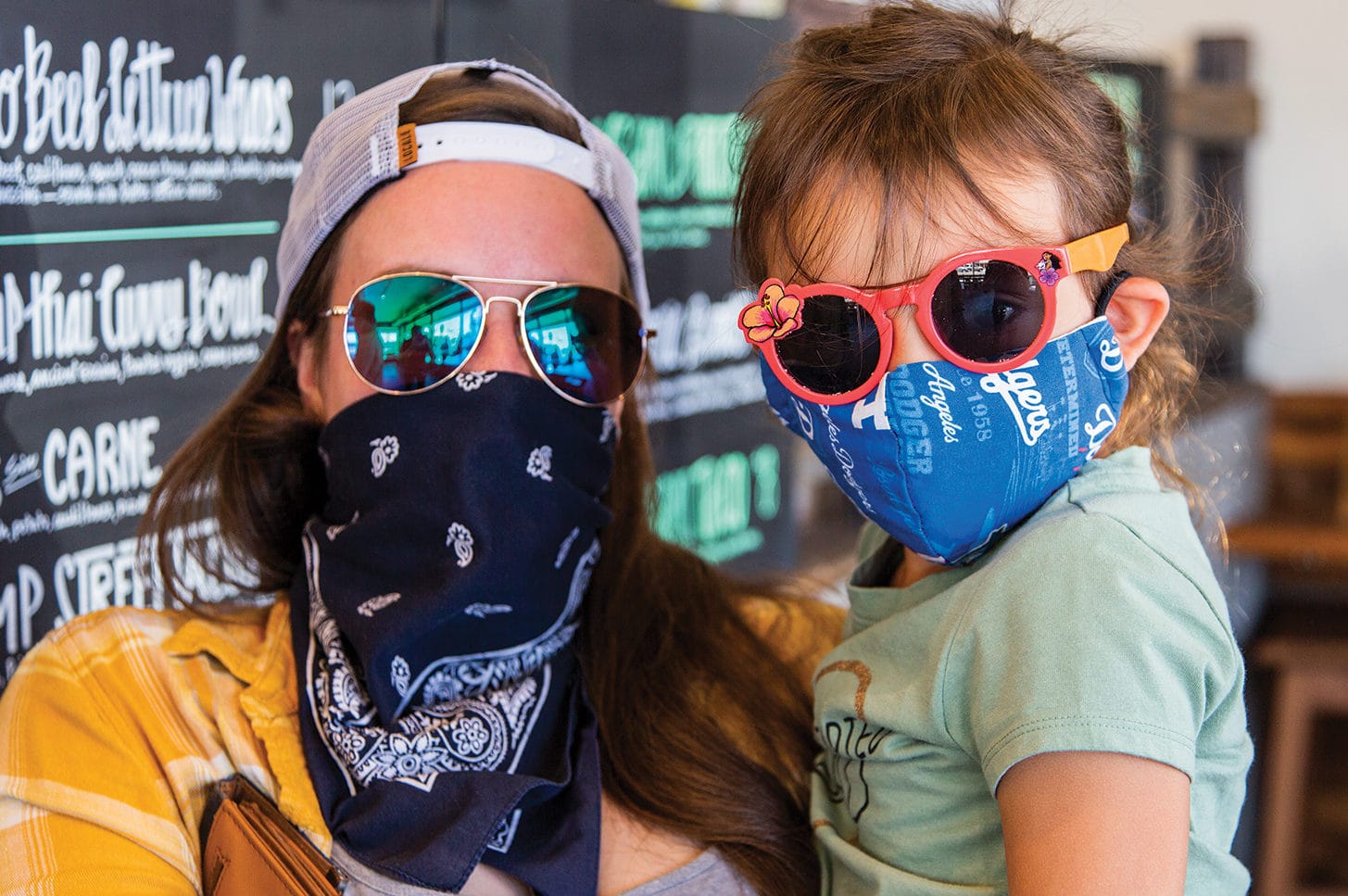
So how do we all get back to our own corner booths? We start by not taking them for granted, and recognizing the fact that those booths won’t exist unless we actively support the businesses that helped us create those forever memories in the first place. We buy gift cards, stay generous with our tips, and if you drink beer, pick up a crowler at your local brewpub instead of a sixer at the grocery store. The profit margin on cocktails is much higher than it is on food, so purchasing batched drinks or to-go beers from your local restaurant definitely helps.
And if you’re not in a position to spend money, the currency of human kindness can go just as far as your dollar. Pick up the phone. Let people know you care and that you’re pulling for them.
“This pandemic set out to isolate and distance us from one another, but in a way it also brought us together,” says Thai Nguyen, front-of-house supervisor at Rabano in Hermosa Beach. “We all share the burden—be it business owners, employees or patrons. We’re all humans who are vulnerable.”
“I celebrated a birthday a couple of days ago,” says Christina. “All my waiters got together and had a surprise birthday for me. They have no money to be spending on anything, but they wanted to do something nice. That tells me I’m on the right path. You have to treat people with dignity. Money comes and goes, the economy comes and goes, but I just feel like I’d rather shut down because I did the right thing than stay open doing the wrong thing. The bottom line is we’re human beings, and we’re all in this together.”
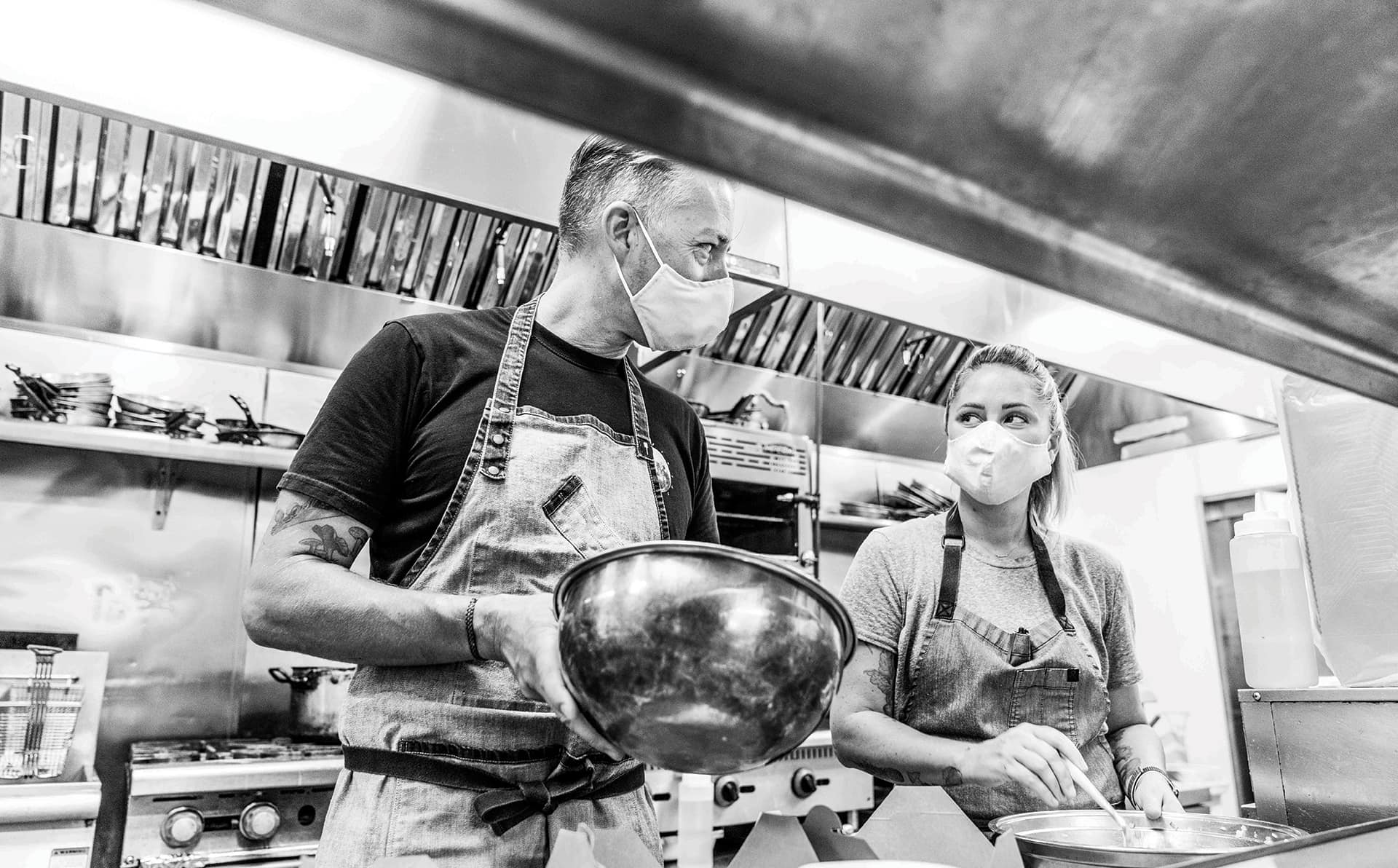
Nick Roberts and Brooke Williamson
Southbay ‘s Annual Spring Style Guide Has the Latest Fashion Trends, Jewelry, Home Goods and Gifts!
Shop local and support our amazing businesses.






